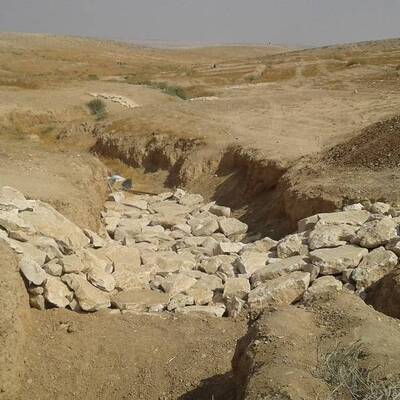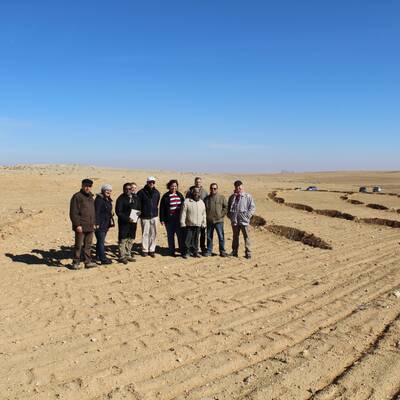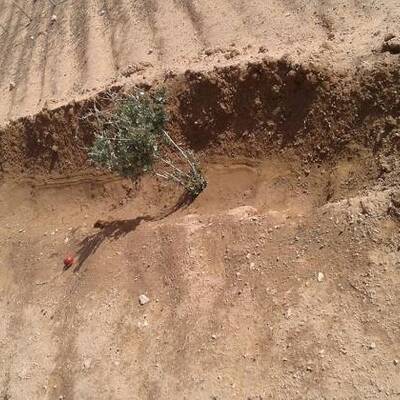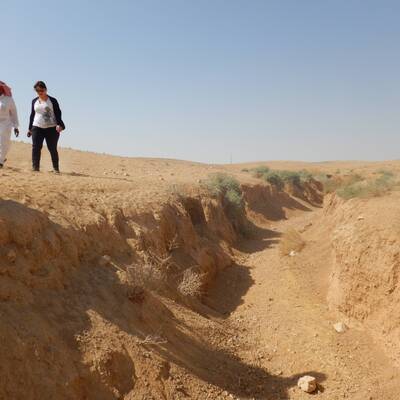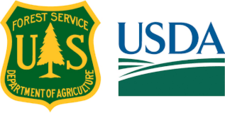Impact pathways
The revegetated gully watershed will become a model site to show integrated watershed management in the Badia, evidencing the opportunities of a more sustainable managed agro-ecosystem (IDO 3.3) in terms of reduced land degradation and amplified carrying capacity. An increased amount of palatable scrubs will decrease the fodder shortage of the local livestock holders, who will rely less on external aid to feed their animals. Besides, medicinal and flavour herbs can be harvested. This improved local productivity enhances the benefits from the ecosystem goods and services (IDO 3.2) and will reduce poverty. The improved quality and quantity of animal related products can increase nutrition and food security. Moreover, the water-harvesting based restoration increases the water retention within the Vallerani pits, mitigating drought stress during the initial plantation period. The project will thus minimize or even reverse land degradation, therefore protecting this natural capital from climate change (IDO 3.1). Discussions with the government and the local communities need to ensure that the rangeland will be used in a sustainable way to preserve the improved natural resources system and ecosystem services (SLO 3), ensuring a long-term benefit for the livelihoods of the rural people.



